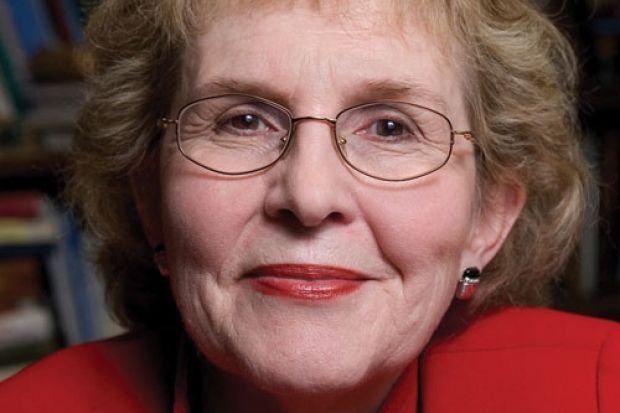Jean Bethke Elshtain, who had been the Laura Spelman Rockefeller professor of social and political ethics at the Divinity School at the University of Chicago since 1995, was born in Windsor, Colorado, on 6 January 1941. She was a prolific scholar whose work tackled issues ranging from feminism and terrorism to the morality of war.
Dr Elshtain was one of several scholars invited to meet with US president George W. Bush shortly after the terrorist attacks of 11 September 2001 to discuss a response, and she became a public supporter of the military interventions of the US and its allies in Iraq and Afghanistan.
Her 2003 book, Just War against Terror, made the moral argument for greater US military engagement abroad, while other works addressed the status of women in military conflicts (Women and War, 1987), her reflections on the changing face of US democracy (Democracy on Trial, 1993) and the application of Augustinian thought to contemporary politics and society (Augustine and the Limits of Politics, 1996).
The list of academic titles bestowed on Dr Elshtain is extensive. She was a fellow of the American Academy of Arts and Sciences, holder of the Maguire chair in ethics at the Library of Congress, and a fellow at the Institute for Advanced Study in Princeton, New Jersey. In 2002, she received the American Political Science Association’s Goodnow Award for her distinguished service to the profession, and served on the boards of the National Humanities Center and the National Endowment for Democracy.
Her colleague Martin Marty, Fairfax M. Cone distinguished service professor emeritus in the Divinity School, described Dr Elshtain as “friendly, buoyant, tireless, inquisitive and faithful (and faith-full) in respect to family, the republic and the vocation of teaching and learning”.
“She loved to provoke and stimulate conversation, argument and opportunities to learn,” he added.
Stephen Meredith, another colleague who co-taught with Dr Elshtain, remembered her “broad and imaginative” approach to her work. “She was a brilliant teacher who seemed to know everything about everything,” said the professor in pathology, biochemistry and molecular biology. “She cannot be replaced.”
After a master’s degree in history from Colorado State University, Dr Elshtain studied for a PhD in political science at Brandeis University, Massachusetts, which she completed in 1973. From then until 1988, she lectured at the University of Massachusetts, Amherst, before becoming a professor at Vanderbilt University in Nashville.
Dr Elshtain died on 11 August. She is survived by her husband Errol, four children and four grandchildren.
